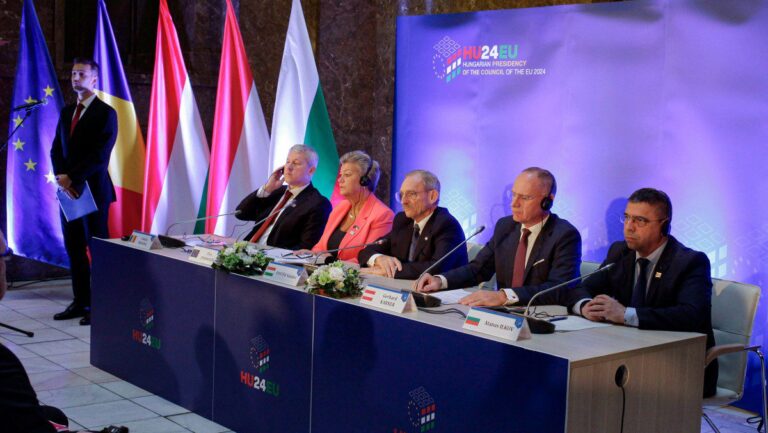The bank Sparkasse Mittelfranken-Süd has sent a threatening letter to one of its customers after he transferred a three-digit sum donation to the federal office of the Alternative für Deutschland (AfD) party, raising questions as to whether banks might begin—or perhaps have already started—blocking transfers to the right-wing opposition party.
A copy of the letter, obtained by the newspaper Junge Freiheit, reads: “The recipient of the payment has a right-wing extremist orientation. Sparkasse Mittelfranken-Süd does not accept such payments. In your own interest, please stop such payments.”
News of the threatening letter comes just days after Germany’s left-activist Interior Minister Nancy Faeser announced her intention to effectively suspend banking secrecy for supposed ‘right-wing extremists.’ Under Faeser’s plan, soon to be scrutinized by the Federal Constitutional Court, Germany’s domestic intelligence agency has the authority to request information on transactions and accounts carried out and held by ‘right-wing extremists’—those deemed to be jeopardizing the fundamental principles of a free and democratic society.
“If we have evidence that money is being used to finance illegal things to prevent the basic democratic order, then we can also close down accounts,” Faeser said.
The phrase “prevent the basic democratic order” is a direct reference to activities that can lead to a party being banned under the German Constitution. The AfD has repeatedly expressed its commitment to the German Basic Law (constitution).
Seeking clarification on the incident, the Berlin-based conservative newspaper contacted the bank for a comment, to which the bank confirmed that the letter was indeed authentic. The bank’s spokesman, however, claimed that the letter was “actually a mistake” and that the customer “will also be informed accordingly.”
Junge Freiheit writes that the letter could not be directly traced back to the bank but to an external service provider contracted by the bank to monitor transactions for signs of potential money laundering. Considering the content contained in the letter—combined with the fact that a few Alternative for Germany (AfD) state associations have been branded as ‘right-wing extremist’ by the politicized Office for the Protection of the Constitution (BfV)—it is possible that this is what led to the letter being sent out.
Sparkasse, however, neither confirmed nor denied whether the letter was sent out by the bank or an external service provider, telling the newspaper that the bank “generally does not disclose information about our IT security systems.”
The external financial service provider has not yet responded to Junge Freiheit’s inquiry into the matter.
Wolfgang Kubicki (FDP), vice president of the Bundestag, told BILD in a comment on the events:
This case must be clarified, because such a letter is usually not written and sent ‘accidentally’. You don’t have to be a friend of the AfD to realize that such a threatening letter has nothing to do with a democratic debate.





